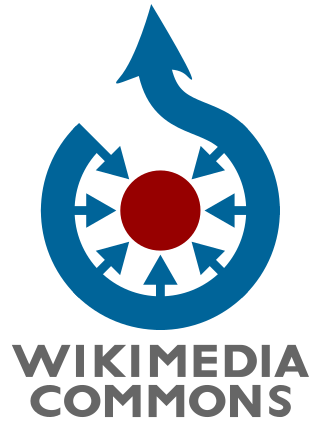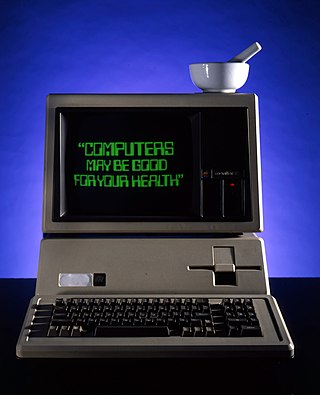
Aetna Inc. is an American managed health care company that sells traditional and consumer directed health care insurance and related services, such as medical, pharmaceutical, dental, behavioral health, long-term care, and disability plans, primarily through employer-paid insurance and benefit programs, and through Medicare. Since November 28, 2018, the company has been a subsidiary of CVS Health.

Health On the Net Foundation (HON) was a Swiss not-for-profit organization based in Geneva which promoted a code of conduct for websites providing health information and offered certificates to those in compliance.
WebMD is an American corporation which publishes online news and information about human health and well-being. The WebMD website also includes information about drugs and is an important healthcare information website and the most popular consumer-oriented health site.
Misinformation is incorrect or misleading information. Misinformation can exist without specific malicious intent; disinformation is distinct in that it is deliberately deceptive and propagated. Misinformation can include inaccurate, incomplete, misleading, or false information as well as selective or half-truths.
Medical News Today is a web-based outlet for medical information and news, targeted at both the general public and physicians. All posted content is available online, and the earliest available article dates from May 2003. The website was founded in 2003 by Alastair Hazell and Christian Nordqvist. It was acquired by Healthline Media in April 2016.
eMedicine is an online clinical medical knowledge base founded in 1996 by doctors Scott Plantz and Jonathan Adler, and computer engineer Jeffrey Berezin. The eMedicine website consists of approximately 6,800 medical topic review articles, each of which is associated with a clinical subspecialty "textbook". The knowledge base includes over 25,000 clinically multimedia files.

The reliability of Wikipedia and its user-generated editing model, particularly its English-language edition, has been questioned and tested. Wikipedia is written and edited by volunteer editors who generate online content with the editorial oversight of other volunteer editors via community-generated policies and guidelines. The reliability of the project has been tested statistically through comparative review, analysis of the historical patterns, and strengths and weaknesses inherent in its editing process. The online encyclopedia has been criticized for its factual unreliability, principally regarding its content, presentation, and editorial processes. Studies and surveys attempting to gauge the reliability of Wikipedia have mixed results. Wikipedia's reliability was frequently criticized in the 2000s but has been improved; it has been generally praised in the late 2010s and early 2020s.

Red Ventures is an American media company that owns and operates brands such as Lonely Planet, CNET, ZDNet, The Points Guy, Healthline, and Bankrate. Red Ventures focuses on news, advice, and review websites. The company's corporate headquarters is located in Indian Land, South Carolina, a suburb of Charlotte, North Carolina.

Wikimedia Commons, or simply Commons, is a wiki-based media repository of free-to-use images, sounds, videos and other media. It is a project of the Wikimedia Foundation.
Healthgrades Marketplace, LLC, known as Healthgrades, is a US company that provides information about physicians, hospitals, and healthcare providers. Healthgrades is part of RVO Health, a partnership between Red Ventures and Optum, part of UnitedHealth Group. Healthgrades has amassed information on over three million U.S. health care providers. The company was founded by Kerry Hicks, David Hicks, Peter Fatianow, John Neal, and Sarah Lochran, and is based in Denver, Colorado. Jeff Hallock serves as RVO Health's CEO. According to USA Today, Healthgrades is the first comprehensive physician rating and comparison database. The application is part of a trend in health technology in the United States towards consumer-driven healthcare.

The Wikipedia online encyclopedia has, since the late 2000s, served as a popular source for health information for both laypersons and, in many cases, health care practitioners. Health-related articles on Wikipedia are popularly accessed as results from search engines, which frequently deliver links to Wikipedia articles. Independent assessments have been made of the number and demographics of people who seek health information on Wikipedia, the scope of health information on Wikipedia, and the quality and reliability of the information on Wikipedia.

Health information on the Internet refers to all health-related information communicated through or available on the Internet.
Psych Central is a mental health information and news website. Psych Central is overseen by mental health professionals who create and oversee all the content published on the site. The site was created in 1995. The site was named as one of the Internet's 50 Best Websites in 2008 by Time, and has approximately 6 million unique visitors per month. PsychCentral was acquired by Healthline in August 2020. Former attorney and author, Faye McCray was appointed Editor-In-Chief in 2021.
A WikiProject, or Wikiproject, is an affinity group for contributors with shared goals within the Wikimedia movement. WikiProjects are prevalent within the largest wiki, Wikipedia, and exist to varying degrees within sibling projects such as Wiktionary, Wikiquote, Wikidata, and Wikisource. They also exist in different languages, and translation of articles is a form of their collaboration.

Media Bias/Fact Check (MBFC) is an American website founded in 2015 by Dave M. Van Zandt. It considers four main categories and multiple subcategories in assessing the "political bias" and "factual reporting" of media outlets.

Social media became an active place to interact during the COVID-19 pandemic, following the onset of social distancing. Overall messaging rates had risen by above 50%, according to a study by Facebook's analytics department. Individuals at home used social media to maintain their relationships and access entertainment to pass time faster.

The COVID-19 pandemic was covered in Wikipedia extensively, in real-time, and across multiple languages. This coverage extends to many detailed articles about various aspects of the topic itself, as well as many existing articles being amended to take account of the pandemic's effect on them. Wikipedia and other Wikimedia projects' coverage of the pandemic – and how the volunteer editing community achieved that coverage – received widespread media attention for its comprehensiveness, reliability, and speed. Wikipedia experienced an increase in readership during the pandemic.

Vaccine Safety Net (VSN) is a global network of websites aimed at helping people judge the quality of online information on vaccine safety. It was established in 2003 by the World Health Organization (WHO), which had previously set up the independent Global Advisory Committee on Vaccine Safety (GACVS), prompted by concern from public health officials regarding the dissemination of potentially harmful health information via the web. By appraising websites, using credibility and content criteria defined by GACVS, the VSN has been developed to deliver information that is easy to access and up-to-date. As of 2020, the initiative has 89 member sites in 40 countries and 35 languages.
Disinformation attacks are strategic deception campaigns involving media manipulation and internet manipulation, to disseminate misleading information, aiming to confuse, paralyze, and polarize an audience. Disinformation can be considered an attack when it occurs as an adversarial narrative campaign that weaponizes multiple rhetorical strategies and forms of knowing—including not only falsehoods but also truths, half-truths, and value-laden judgements—to exploit and amplify identity-driven controversies. Disinformation attacks use media manipulation to target broadcast media like state-sponsored TV channels and radios. Due to the increasing use of internet manipulation on social media, they can be considered a cyber threat. Digital tools such as bots, algorithms, and AI technology, along with human agents including influencers, spread and amplify disinformation to micro-target populations on online platforms like Instagram, Twitter, Google, Facebook, and YouTube.










